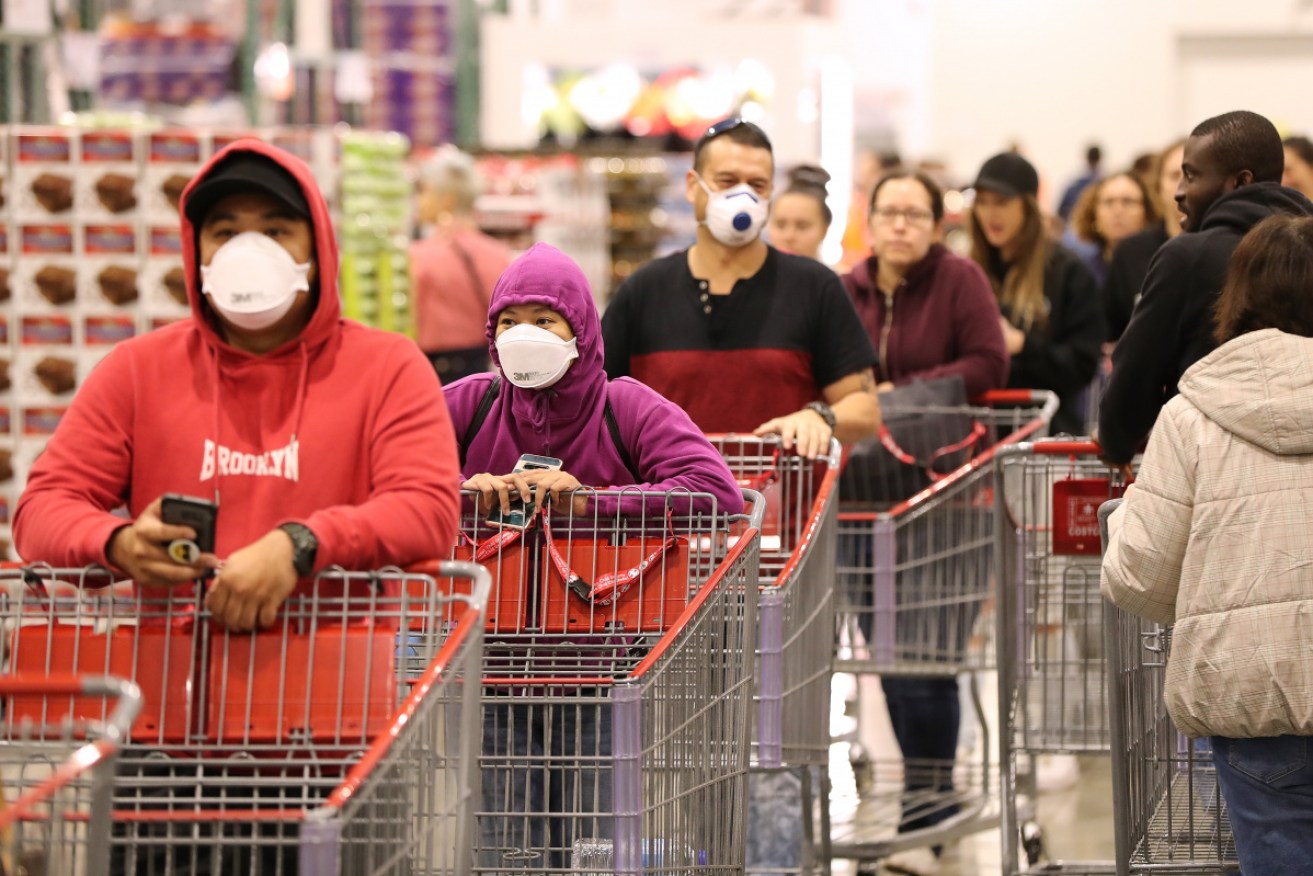‘Wake-up call’: Demand for Australian-made products surges amid supply chain vulnerabilities


The pandemic has fuelled demand for Australian-made goods. Photo: Getty
The coronavirus pandemic has changed the way Australians think about shopping, and fuelled a growing hunger for locally made goods.
Demand for Australian-made products soared in 2020 as borders closed, global manufacturing and supply was disrupted, and waves of panic-buying swept the nation, new data from market research firm Roy Morgan has revealed.
More than nine in 10 Australian shoppers (93 per cent) said they were more likely to buy locally made products, up from 87 per cent in 2019, the survey of more than 50,000 people showed.
Neighbouring New Zealand was the second most popular country of origin for products, according to Roy Morgan, despite consumer preference for NZ products falling by 4 percentage points from 59 per cent in 2019 to 55 per cent in 2020.
Chief executive of the Australian Made campaign Ben Lazzaro described the pandemic as a “a wake-up call” that has made people “stop and reassess their purchasing decisions”.
“Everyone knew someone that lost a job or had reduced hours as a result of the pandemic,” Mr Lazzaro said.
“I think we all stopped and thought about the impact of our purchasing decisions and acknowledged our over-reliance on imports.
“So we all are more mindful about what happens when we buy local products, the fact that they create jobs, pump money into the local economy, and that we have access to some of the highest-quality products made to the highest safety standards in the world.”
There is now a “real opportunity to shift the balance back towards local manufacturing”, Mr Lazzaro said.
“You’re always going to need a mixture of imported products and domestically made ones,” he said.
“I think we have noticed that the needle has swung a little too far in the direction of imports.”
Consumer values shift
Consumer values have shifted dramatically due to the pandemic, with more shoppers considering the collective implications of their purchasing decisions, explained consumer psychologist Jana Bowden, an associate professor of marketing and chair of ethics at Macquarie University.
“The pandemic has shone a spotlight on superordinate goals and it has shifted consumer value sets from an individual perspective to a collective perspective,” Dr Bowden said.
“Our overarching goals are now shared: Safeguarding and protecting ourselves, our community and our collective future(s).”
COVID-19 has also highlighted the fragility of global supply chains, and triggered calls to build resiliency by boosting local manufacturing.
Australians are “keener than ever to ensure the country becomes much more self sufficient and not reliant on other countries for a range of goods and services,” University of Tasmania senior lecturer in marketing Louise Grimmer said.
“Problems with supply chains and international logistics have also certainly played a role in increasing our appetite for locally made products,” Dr Grimmer said.
“In addition, being able to manufacture goods in Australia is also perceived as important for creating new jobs, increasing employment and strengthening local economies.”
Retailers will need to adapt to “continuing demand from consumers for locally sourced and produced products”, Dr Grimmer said.
“We will see more and more retailers adjusting their offerings and also more effort being put into marketing messaging around selling locally manufactured and sourced products,” she said.
“Traditionally consumers have often paid more for local products and this was a barrier for some consumers, but I think this is changing as the appetite for local products continues to skyrocket.”
The impact of China trade tensions
Australia’s troubled diplomatic and trade relationship with China may also be influencing consumer preferences, with the number of Australian consumers expressing a preference for goods made in China plunging 9 percentage points in 2020, to 21 per cent.

Percentage of Australians more likely to buy products depending on country of origin, 2019 v 2020. Source: Roy Morgan
“There has been a shift in public sentiment amidst the increasing global political and trade tensions,” Dr Bowden said.
“Consumers strongly believe that we should be producing more products locally following the pandemic.”
More than anything, changing consumer sentiments are “being driven by a significant and underlying shift in how we see our people, our country and our future”, Dr Bowden said.
“The pandemic has shone a spotlight on key societal issues. Australians want to see the economy strengthen, they want to see jobs created and they want to support Aussie businesses.”








